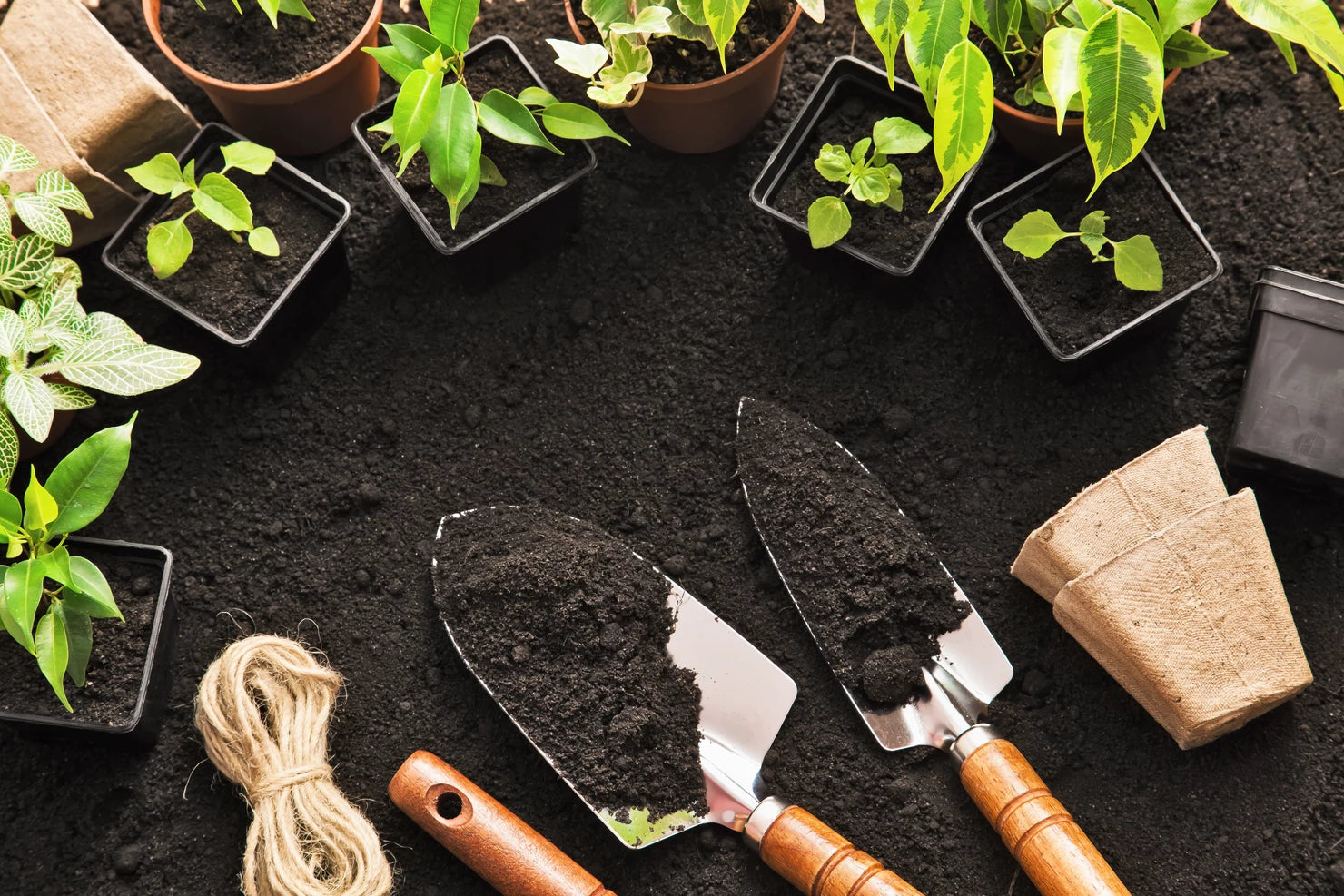Importance of houseplant collections
Collecting houseplants can have numerous benefits for both your mental and physical health. Houseplants are known to purify the air, reduce stress, and improve overall well-being. They add a touch of nature to your indoor space, bringing in a sense of calm and serenity. Having a diverse collection of houseplants allows you to explore different species, care routines, and aesthetic designs, enriching your experience as a plant parent. By understanding the unique requirements of each plant, you can cultivate a thriving and visually appealing indoor garden.

Selecting the right plants for your home
When choosing plants for your home, it's important to consider the level of light and humidity in each room. Certain plants thrive in bright, indirect light, while others prefer low light conditions. Research the specific needs of each plant before making a decision. Additionally, consider the size of the space and the desired aesthetic. Some popular houseplants like pothos, snake plants, and spider plants are known for their resilience and low maintenance, making them great options for beginners. Remember to choose plants that will complement your home's atmosphere and that you feel confident in caring for.
Basic care tips for houseplants
Make sure your houseplants are in pots with drainage holes to prevent water from pooling at the bottom and causing root rot. Water your plants when the top inch of the soil feels dry, and make sure to avoid waterlogging. Provide ample indirect sunlight and rotate the pots regularly for even growth. Use a natural fertilizer every 2-4 weeks during the growing season. Keep an eye out for pests and remove dead or yellowing leaves to maintain plant health.
Understanding light, water, and soil needs
Houseplants have varying light, water, and soil requirements. Understanding these needs is vital for maintaining a healthy indoor garden. Here are the basics:
- Light: Different plants require different amounts of light. Some thrive in bright, indirect light, while others prefer low light conditions. Be sure to research the specific light requirements for each plant in your collection.
- Water: Overwatering can be just as damaging as underwatering. It's important to find the right balance for each plant. Generally, it's best to allow the soil to partially dry out between waterings, but again, the specific needs of each plant should guide your watering schedule.
- Soil: The type of soil varies for different plant species. A well-draining potting mix is generally a good choice, but some plants may have specific soil needs, such as more acidic or alkaline soil. Research the soil requirements for each plant to ensure proper growth.
Popular houseplant collections
The most popular houseplant collections include succulents, cacti, ferns, and air plants. These plants are widely loved for their low maintenance and varied aesthetics, making them a great option for both experienced and novice plant enthusiasts. Additionally, succulents and cacti are known for their resilience and ability to thrive in arid conditions, while ferns and air plants offer a lush and tropical ambiance to indoor spaces.
Plant decor tips and tricks
If you're looking to spruce up your space with some greenery, here are a few tips and tricks to help you create an eye-catching plant decor.
- Placement is Key: Make sure to consider the amount of light needed for your plants when deciding on their placement in your home. Some plants thrive in bright, direct sunlight, while others prefer shadier spots.
- Mix and Match: Combine different plants with varying heights, leaf shapes, and textures to create a dynamic and visually appealing display.
- Pots Matter: Don't underestimate the impact of stylish pots and planters. Choosing pots that complement your plant's colors and your home decor will elevate the overall look of your collection.
- Regular Maintenance: Remember to water and fertilize your plants as needed, and remove any dead leaves or flowers to keep them looking their best.
Incorporating these tips into your plant decor will help you create an inviting and lively atmosphere in your home.
Dealing with common houseplant problems
Brown spots on leaves are often caused by overwatering or lack of sunlight. To prevent overwatering, ensure that the soil is dry to the touch before watering again. Yellow leaves may indicate both overwatering and underwatering, so adjust your watering schedule accordingly. If you notice white, cottony spots on your plants, they may have a mealybug infestation. Wipe the affected areas with rubbing alcohol to eliminate them. If your plants are dropping leaves, they may be experiencing stress from changes in lighting, temperature, or humidity. Gradually acclimate them to their new environment to help them adjust.
DIY plant care solutions
Water your plants when the top inch of soil feels dry, and ensure proper drainage to prevent root rot. Prune any dead or yellowing leaves to encourage new growth, and regularly dust the leaves to boost photosynthesis. Choose the right pot size to avoid overcrowding or overwatering. Use a well-draining soil mix and fertilize sparingly to avoid nutrient buildup. Mist your tropical plants, provide adequate sunlight, and rotate them regularly for even growth. Maintain a regular cleaning schedule to keep pests at bay. Remember, each plant variety may require unique care solutions, so pay attention to their specific needs for a thriving collection.
Benefits of a thriving indoor garden
Having a thriving indoor garden can bring a host of benefits to your home and well-being. Here's why cultivating a collection of houseplants is a great idea:
- Improved air quality: Plants are natural air purifiers and can help reduce toxins and improve the air quality in your home.
- Mood enhancement: Studies show that having plants around can reduce stress and anxiety, while promoting a sense of calm and well-being.
- Connection with nature: Cultivating an indoor garden can help you feel more connected to nature, even if you live in a bustling city.
- Increase in productivity: Having plants in your workspace or home office can increase productivity and creativity, creating a more pleasant and inviting environment.
- Health benefits: Some houseplants have air-purifying properties and can contribute to better respiratory health.
So, if you're looking to create a healthier, more inviting home environment, consider starting your own indoor garden today!
Summary and next steps
So, you've learned the basics of starting your houseplant collection. Start by choosing a few low-maintenance plants to build your confidence, like snake plants, pothos, and succulents. Then, gradually experiment with more demanding plants as you gain experience. Remember to pay attention to each plant's specific care needs, such as lighting, watering, and humidity. Regularly check for pests and diseases. And don't forget to enjoy the process – tending to your plants can be incredibly rewarding!











